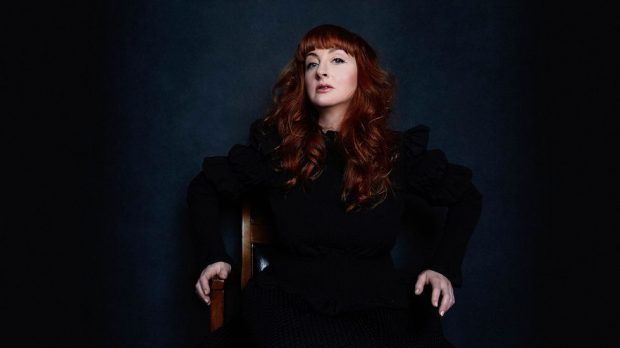
Western Australian composer Rachael Dease has contributed her haunting compositions and sound designs to a diverse range of musical disciplines throughout her career, including the dance-theatre work Sunset, Dark Mofo’s Winterfeast, the award-winning art music song cycle City of Shadows, and as the front person of alternative rock band Schvendes. Now in what’s set to be one of the highlights of Perth Festival 2021, Dease will launch her debut solo album Hymns For End Times accompanied by Western Australian Symphony Orchestra at His Majesty’s Theatre on Thursday, February 18.
Originally written during the Australian bushfires as lullabies when she was nursing a baby and facing man-made disaster and helplessness, Hymns for End Times is both a powerful protest against an apocalyptic future and a poetic lullaby to help soothe our fears. BRAYDEN EDWARDS spoke to Rachael Dease ahead of the performance to find out how the circumstances surrounding the writing of the album and the events that followed will make the occasion all the more cathartic.
You have written and performed music across a number of genres for some years now but this is you first solo album. How does that make it feel different from anything you have released before?
It’s a fairly unapologetic amalgamation of who I am and where I’m at as an artist. Working across a number of genres and fields I’ve always felt a little lost, a bit of a literal misfit. I wrote Hymns for End Times without thinking who would listen to it, without even the intention of release. So it was created entirely with creative instinct. Some tracks felt right after one minute, some after seven. It’s a cathartic release though, and I’m so glad I had the support to release it, let alone perform it live.
The notion of the album and its title in particular feel very fitting after the year we’ve been through, but I hear it was actually written last summer? What was it at the time that inspired you to explore the theme of “end times?”
No, the ideas began last summer. I started recording little fragments of song while I was nursing Duke. This started during the 2019/2020 bushfires, then carried on throughout COVID and the worldwide insanity of that whole year. I mean, weren’t there moments last year when you thought “oh jeez – this is probably it for us!” I was inspired in part by the juxtaposition of feeling like humans should take a hike off the earth finally, and how beautiful it all was still.
The album was written at Gallop House on the Swan River. Did you feel like the natural setting you found yourself in also inspired the music?
The relative isolation was a bit of a double-edged sword, but the quietness and vista allowed all sorts of dreams and visualisations to happen. It’s a cinematic view, looking east over the desert. It absolutely affected the way the album was created and its end result. A heavy stillness.
I heard you were also looking after a newborn baby at this time too. Do you think that also shaped the music, both in its style and content?
Well he wasn’t a newborn, but still very little and nursing. It was by far the biggest factor in the way the whole album sounds, because the whole act of becoming a parent is a seismic shift. Much of the work pays homage to this, it’s a mixture of complete confusion and steadfast, instant knowing – all at once. I leant into the joys of a simple two line melody and also felt the need to create some kind of dense chaos all at once.
You are set to launch this album with a live performance as part of Perth Festival. How will you go about recreating this music in a live setting?
I have an incredible team at Perth Festival and Tura New Music, but most of the credit goes to the arranging team of Alice Humphries, Kathy Potter and Mia Brines. Because Hymns for End Times was written with a kind of complete abandon, my intention wasn’t live performance, it’s quite a feat they’re pulling off – and it’s sounding just beyond my wildest dreams. Bruce McKinven has created a set pulled straight out of pure cinematic wonder as well. I don’t know if anything’s been done like this before.
Despite reckoning with some heavy themes on the record there is ultimately a sense of hope in the music too, what is it that you would most like people to experience or learn from the record?
You’re right, it’s full of hope. I’d like people to feel like they’re not alone when they feel dread, or fear. That each stranger you see has their own history and complexities and failings and wonder. That most everyone, for at least a moment, was cradled.